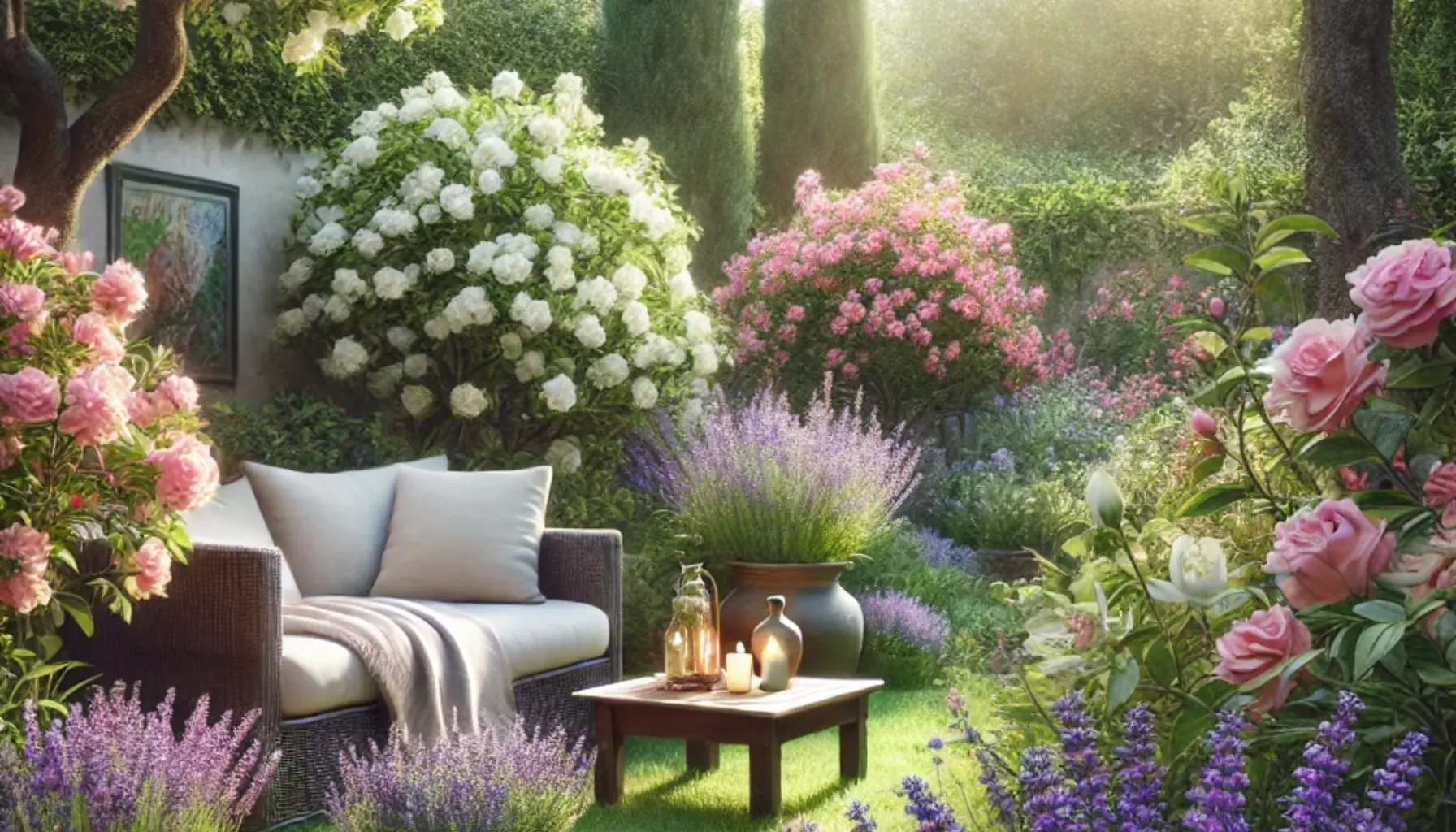Aromatic gardens are a feast for the senses, combining visual beauty with captivating fragrances. Whether it’s the sweet scent of jasmine or the intoxicating aroma of gardenias, these gardens offer a relaxing escape and attract pollinators like bees and butterflies. Cultivating fragrant flowering plants adds a unique charm to your outdoor or indoor spaces.
This guide lists popular fragrant plants, provides care tips, and shares insights to help you create a successful aromatic garden.
Why Choose Fragrant Flowering Plants?
Fragrant plants offer more than just beauty; they elevate your garden experience:
- Sensory Delight:
- Their fragrances create a calming and inviting atmosphere.
- Attract Pollinators:
- Bees, butterflies, and hummingbirds are drawn to these plants, enhancing biodiversity.
- Versatility:
- Suitable for gardens, patios, and even indoor spaces.
- Personal Well-Being:
- Aromas like lavender and jasmine are known for their stress-relieving properties.
Incorporating fragrant plants makes your garden a sanctuary for relaxation and enjoyment.
Top Plants for an Aromatic Garden
Here are some popular fragrant plants to consider:
- Jasmine (Jasminum spp.)
- Fragrance: Sweet and floral, especially at night.
- Best For: Fences, trellises, and indoor pots.
- Care Tips: Prefers full to partial sun and well-drained soil.
- Gardenia (Gardenia jasminoides)
- Fragrance: Rich, sweet, and creamy.
- Best For: Gardens and pots with filtered sunlight.
- Care Tips: Requires acidic soil, consistent moisture, and high humidity.
- Lavender (Lavandula spp.)
- Fragrance: Herbal and calming.
- Best For: Borders, rock gardens, and dried arrangements.
- Care Tips: Thrives in full sun and well-drained, sandy soil.
- Night-Blooming Jasmine (Cestrum nocturnum)
- Fragrance: Intensely sweet, strongest at night.
- Best For: Night gardens and shaded areas.
- Care Tips: Prefers partial shade and rich, moist soil.
- Roses (Rosa spp.)
- Fragrance: Varies from sweet and fruity to spicy.
- Best For: Rose beds, trellises, and containers.
- Care Tips: Requires full sun, rich soil, and regular pruning.
These plants bring diverse scents and aesthetics to your garden.
How to Grow Jasmine and Keep It Healthy
Jasmine is a favorite for its heavenly fragrance and versatility:
- Planting Tips:
- Choose a sunny spot or partial shade for optimal growth.
- Use well-draining soil enriched with organic matter.
- Watering:
- Water regularly to keep the soil moist but not soggy. Adjust frequency during dry seasons.
- Pruning:
- Prune after flowering to maintain shape and encourage new blooms.
- Support Structures:
- Use trellises or fences to support climbing jasmine varieties.
With these care practices, jasmine will reward you with abundant blooms and lasting fragrance.
Caring for Gardenias: Beauty and Fragrance in Harmony
Gardenias are prized for their lush blooms and captivating scent:
- Soil Requirements:
- Use acidic soil (pH 5.0-6.5) and enrich it with compost or peat moss.
- Lighting:
- Provide filtered sunlight or partial shade to prevent leaf scorching.
- Watering and Humidity:
- Keep the soil consistently moist and increase humidity with a tray of water or misting.
- Fertilizing:
- Use a fertilizer designed for acid-loving plants during the growing season.
- Pest Control:
- Watch for pests like aphids and whiteflies, treating with neem oil if needed.
Proper care ensures your gardenias remain healthy and fragrant year-round.
Other Fragrant Plants to Enrich Your Garden
Expand your aromatic garden with these additional options:
- Sweet Alyssum (Lobularia maritima)
- Compact plant with a honey-like fragrance, perfect for borders.
- Honeysuckle (Lonicera spp.)
- A climbing plant with sweetly scented flowers, ideal for fences and pergolas.
- Rosemary (Rosmarinus officinalis)
- A dual-purpose herb with a woody, aromatic scent, excellent for edging gardens.
- Tuberose (Polianthes tuberosa)
- Known for its intense, heady fragrance, great for cutting gardens.
- Plumeria (Plumeria spp.)
- Tropical flowers with a soft, sweet aroma, ideal for warmer climates.
These plants add variety to the scents and visuals in your garden.
Tips for Creating a Successful Aromatic Garden
Follow these strategies to design and maintain a fragrant garden:
- Placement:
- Group plants with complementary scents near seating areas or walkways.
- Soil and Drainage:
- Use well-draining soil and amend with compost for better plant health.
- Container Gardening:
- Grow fragrant plants in pots for mobility and easier care.
- Seasonal Blooms:
- Choose a mix of plants that bloom at different times to enjoy fragrance year-round.
- Layering:
- Combine ground covers, shrubs, and climbers for a multi-dimensional garden.
These tips help you create a garden that’s as practical as it is enchanting.
Prolonging the Fragrance in Your Garden
To keep your garden aromatic, ensure the following:
- Regular Deadheading:
- Remove faded flowers to encourage new blooms.
- Adequate Fertilization:
- Feed plants during the growing season to maintain vigor.
- Pest Management:
- Protect plants from pests that can damage blooms and leaves.
- Pruning and Maintenance:
- Trim overgrown branches to allow light and air circulation.
- Weather Protection:
- Shelter sensitive plants from extreme heat or cold.
With these practices, your garden will remain fragrant and inviting throughout the year.
Conclusion: Create Your Aromatic Haven
Fragrant flowering plants transform your garden into a sensory retreat. Whether you prefer the sweet notes of jasmine, the bold scent of gardenias, or the calming aroma of lavender, these plants offer endless possibilities to enhance your outdoor and indoor spaces.
Start cultivating your aromatic garden today and enjoy the beauty and tranquility it brings to your life.

